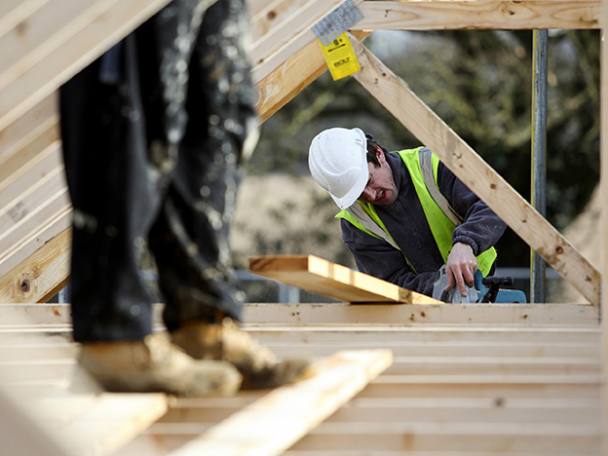There’s a high degree of uncertainty over the near-term future of the UK housing market as we head towards a recession and a potentially sharp rise in unemployment. Coming off the back of the Covid-19 lockdown, housebuilder Redrow’s (RDW) profits are set to deteriorate in the year ending 30 June 2020, with a gradual recovery thereafter. But that weaker outlook seems more than adequately priced into its shares. With a track record of good cost control and improved liquidity, it looks well placed to ride out any pressure on sales prices and transaction volumes that may arise this year.
Shares at discount to NAV
Stamp duty reform boost
Record order book
Forecast return to net cash
Expected downturn in sales prices
Potential margin pressure
Shares across the housebuilding sector have been marked down in anticipation of a fall in house prices this year. This is based on expectations that unemployment will increase once the government’s furlough scheme draws to a close. Redrow’s shares are currently trading at a 12 per cent discount to its forecast book value for the year ending June 2021. It follows a warning last month that profits for its 2020 financial year will be “substantially below” the prior year due to costs associated with scaling-back its London operations and fewer completions. But compared with mid-cap peers Barratt Developments (BDEV) and Bellway (BWY) – the latter of which is trading at a 5 per cent discount to its forward book value – Redrow’s lowly rating seems overly harsh.
An ability to keep a tight rein on costs helped protect its operating margins in 2019, amid a decline in average sales prices across the sector. This could offer greater resilience in the face of a housing market downturn this year. Redrow has also consistently generated a high return on capital employed, coming in at 25 per cent for the six months to 31 December.
Having reopened its sales offices in mid-May, the ensuing five weeks saw a net weekly sales rate per site of 0.56, down only slightly from 0.59 for the same period in 2019. Around 70 per cent of its record £1.42bn order book is contracted revenue, which should help underpin transaction levels this year. This could be further aided by the chancellor's stamp duty threshold reforms, although the sales rate may be difficult to sustain if unemployment increases.
Redrow swung to £126m of net debt by the end of June, from a £124m net cash position a year earlier. But analyst consensus (as compiled by FactSet) predicts it will revert to £167m of net cash this year. Cost-saving initiatives, more cautious land purchases and efforts to scale back site openings have bolstered cash generation in the past, and similar measures could help it weather the tougher conditions ahead. Meanwhile, free cash flow generation has improved for the past five consecutive years, with an almost 50 per cent increase in 2019, to £289m. Boosting its near-term cash resources, Redrow has expanded its revolving credit facility to £350m and deferred a number of land payments into 2021 and beyond.
| REDROW (RDW) | ||||
| ORD PRICE: | 461p | MARKET VALUE: | £1.58bn | |
| TOUCH: | 460-461p | 12-MONTH HIGH: | 851p | LOW: 293p |
| FW DIVIDEND YIELD: | 3.3% | FW PE RATIO: | 9 | |
| NET ASSET VALUE: | 479p | NET DEBT: | See text | |
| Year to 30 Jun | Turnover (£bn) | Pre-tax profit (£m)* | Earnings per share (p)* | Dividend per share (p) |
| 2017 | 1.66 | 315 | 69.9 | 17.0 |
| 2018 | 1.92 | 380 | 85.3 | 28.0 |
| 2019 | 2.11 | 406 | 92.4 | 30.5 |
| 2020* | 1.35 | 179 | 41.3 | 10.5 |
| 2021* | 1.55 | 226 | 52.9 | 15.0 |
| % change | +15 | +26 | +28 | +43 |
| Beta: | 1.89 | |||
| *Peel Hunt forecasts, adjusted PTP and EPS figures | ||||









